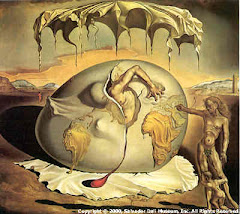But before we begin to elaborate our conception of a global ethics it might be useful to ask the question: “Is a global ethics of the kind described here even possible?” At the end of the book I will offer a cautiously optimistic answer to this question. But at the outset it should be noted that there are several good reasons for thinking that a global ethics of the kind outlined here might not be possible.
Basic facts about the innate human moral sense that is the evolutionary product of millions of years of hunter-gather existence, set limits on how far we can project our empathy and with what constancy we can maintain it. History and tradition, as well social and political facts pertaining to the nature and powers in our present global economic system will also be significant obstacles towards achieving any large scale revaluation of values of the kind that I think is needed. Significant kinds of social and economic inequalities both within and among our present human societies will also make it difficult for all people to take up this kind of ethical framework at the same rate or to the same degree.
Large-scale changes in ethical beliefs and values do not happen overnight. Rather they begin with a small number of individuals who embrace them and then they are spread by means of social movements. They are taken up piecemeal, by different people at different rates, and they undergo changes in the process of social diffusion.
However, one basis for an initial cautious affirmation of the possibility of a global ethics is an existence proof: there are, in fact, some individuals, those people who are among the 'cultural creatives' or 'global citizens' who are presently living in accordance with the basic values that a global ethics would dictate.
Some years ago I came across a website on which there appeared a “Declaration of Interdependence” which said that,
"We hold these truths to be self-evident: That all people are evolved equal; that they are endowed by their existence with certain undeniable responsibilities; that among these are respect for all life forms; stewardship of the biosphere, and the pursuit of a joyful and intelligent exploration of the Earth and the universe."
The kind of global perspective that inspired whoever wrote these words is becoming more widespread. One can find echoes of it in the lives of contemporary people who, through their personal choices, actions and lifestyles, demonstrate the kind of responsibility for themselves and for others that a global ethics requires. Such persons care about the international protection of human rights for all people, and strive to protect and sustain the natural environments they occupy. They also have a lively moral concern about what kind of world they will be leaving to their children and grandchildren, and to future generations to come. Since there are already some people who are enacting the model of global citizenship that I am attempting to describe here, there are grounds for hoping that the seeds of the future that are already present can be nurtured and spread.




